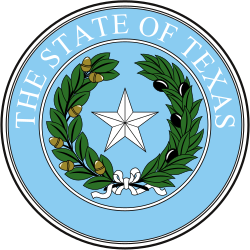| |||||||||||||||||
| |||||||||||||||||
 County results Gramm: 40–50% 50–60% 60–70% 70–80% 80–90% Parmer: 40–50% 50–60% 60–70% 70–80% Tie: 50% | |||||||||||||||||
| |||||||||||||||||
The 1990 United States Senate election in Texas was held on November 6, 1990. Incumbent Republican U.S. Senator Phil Gramm won re-election to a second term.


